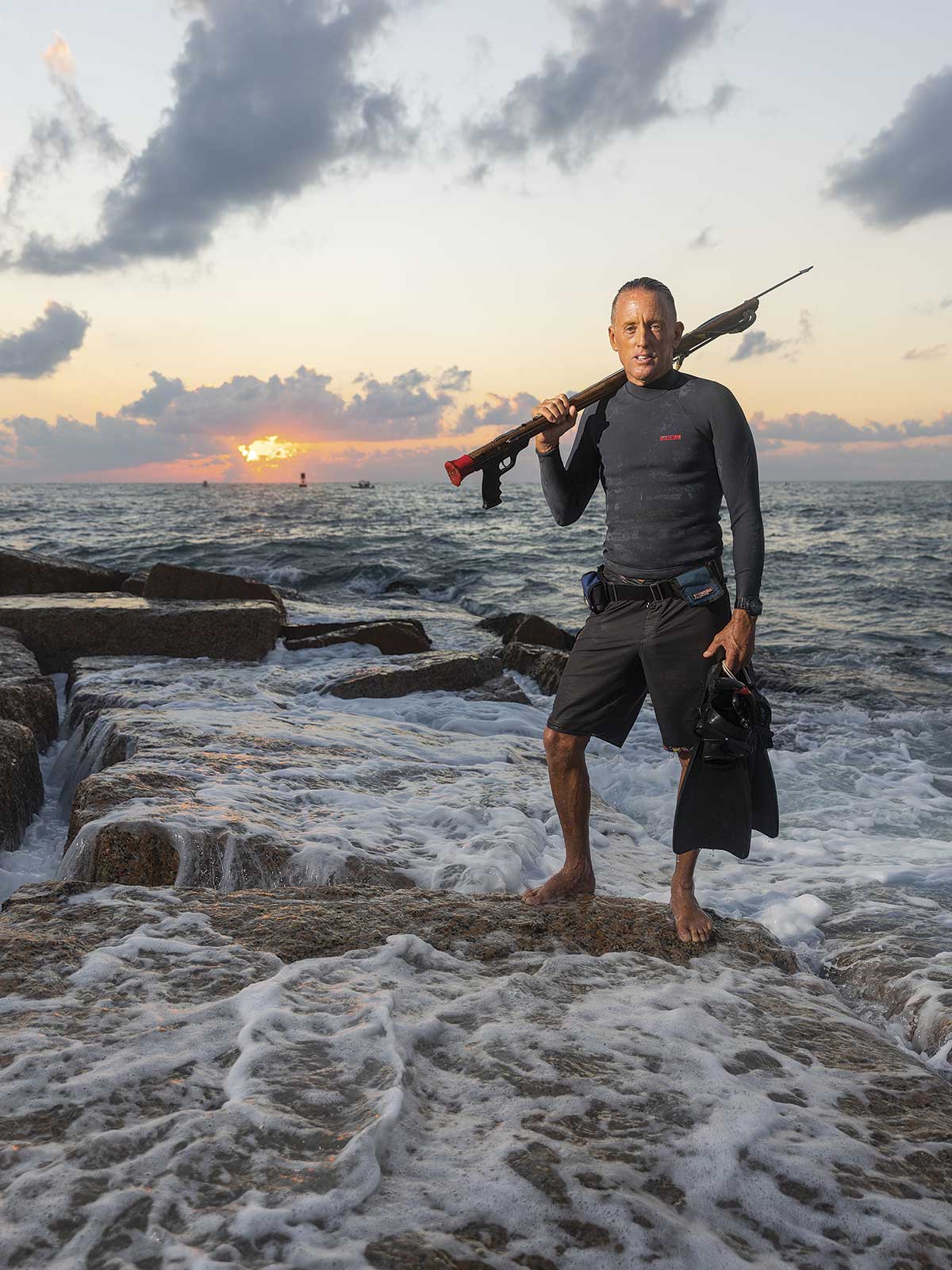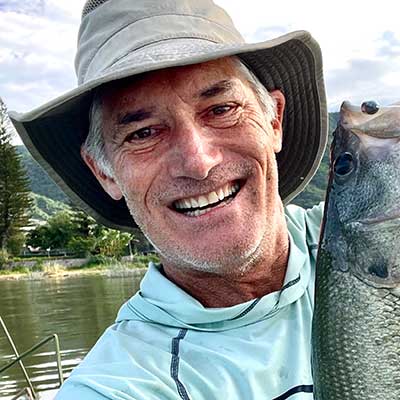Gene Gore’s earliest memory of the ocean was a family trip to Galveston in the 1970s.
“Dad smashed us kids in the back of the station wagon with a loaf of bread,” Gore says. “Once at the beach, Mom was floating on an inflatable raft, on a super calm day. I just remembered these little glassy waves peeling that caught my eye.”
He never forgot those waves. How could he?
Gore grew up in southwest Houston, and his family had a beach house on the Bolivar Peninsula. When he knew his family was beach-bound, he would sprint the 2 miles home from school because he was so excited to go to the coast.
Like a lot of kids who grow up around the beach, Gore went on to become a lifeguard, working in Galveston. But unlike a lot of kids, he turned the beach into a career. And then a lifestyle.
After decades in the surf, Gore, now the owner of South Padre Surf Co., is a waterman—a master of the sea, sensitive to the ever-changing conditions of the ocean and the weather above it. And he uses his special abilities to help swimmers in distress.
In the 1980s, Gore went to Hawaii to compete in the U.S. Lifesaving Association National Lifeguard Championships. He found a greater purpose there.
“Back in Texas, lifeguarding is a seasonal occupation,” Gore says. “During my Hawaii visit, I realized that lifeguarding was a year-round job, so in 1991, I bought a one-way plane ticket to Honolulu. I went to Hawaii to be a full-time lifeguard.”
On the islands, Gore found not just lifeguards—but watermen.
Bradley Melekian, writing for The Surfer’s Journal in 2016, said that watermen are “men and women who not only know or knew how to do certain things in the ocean with incredible skill, but men and women who knew why they were doing these things, and dedicated their lives to existing in deep harmony and accordance with that profound sense of purpose.”
That spoke to Gore. “In Hawaii, I worked my tail off and gained respect from the local Hawaiians,” he says. “It’s their territory, their country. I got to the point where Hawaiian waterman and lifeguard Brian Keaulana—his family is like Hawaiian royalty —would drop his kids off at the beach at my lifeguard tower. I had earned respect from the king.”
Eventually Gore returned to Texas to teach people how to surf, but he brought to Texas a lot more than surfing know-how.
While working as a surfing instructor around Isla Blanca Park on the southern tip of South Padre Island, Gore made more than 100 surf rescues on the Texas coast over the course of 10-plus years. He also recovered more than a dozen bodies from the surf. Rip currents are a major danger on Texas beaches, and many don’t know how to swim out of a rip.
Gore says he started going to city council meetings, then county commissioners’ meetings, to push for a lifeguard program. In 2008, South Padre Island Fire Department Beach Patrol was started as a pilot program, and Gore was the head lifeguard. Gore’s children, Melia, 21, and Micah, 23, have been lifeguards there as well.
On South Padre Island, Gore also learned how to spearfish. “Spearfishing in the Gulf of Mexico off Texas beaches is amazing,” he says. “Better than in Hawaii.”
On days with clear water, he’ll spearfish for mangrove snapper around the end of the jetties that protect the Brazos Santiago Pass ship channel.
“I love when I walk past all these rod-and-reel fishermen and jump in the ocean and see all these fish not paying attention to the lures and bait these fishermen put out there,” he says. “Spearfishing is a lot more satisfying but a lot more dangerous.”
Gore’s knowledge of the sea helps Texans in other ways, too. He does consulting work for the local National Weather Service office in Brownsville.
For Gore, being a waterman means staying finely attuned to changing weather conditions, different cloud formations and the ocean’s constant state of flux. For example, insects, especially dragonflies, appear in abundance when the winds are out of the west, he says. West winds here mean offshore winds, which are better for surfing.
“The most important thing I do as a waterman is to teach people to respect the ocean and its power,” he says. “It’s a delicate resource that needs to be preserved.”



